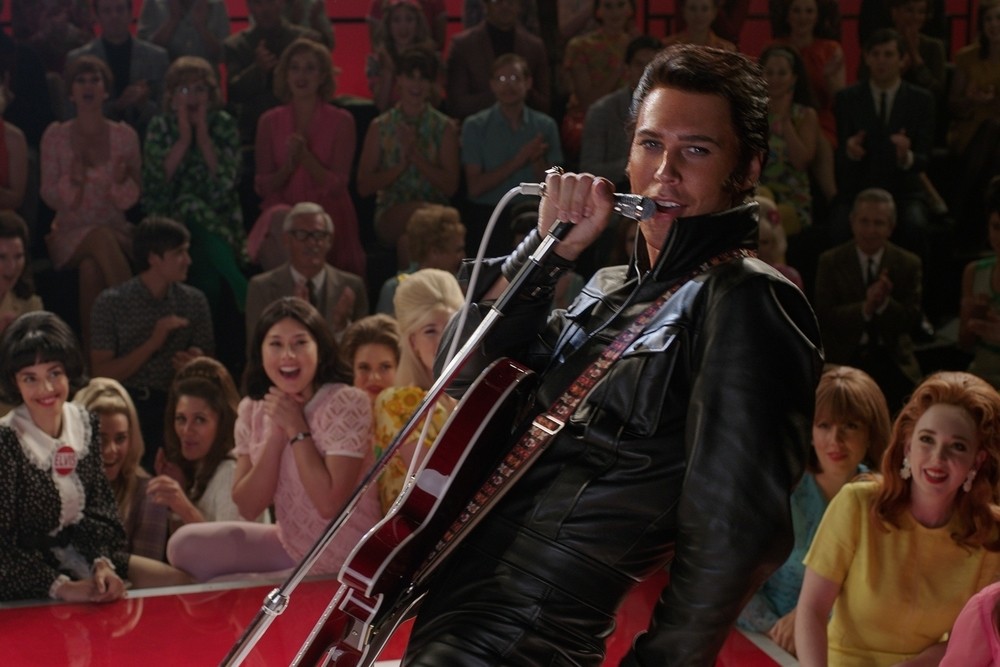Elvis

Austin Butler stars in ELVIS. (Photo: Warner Bros.)
An unabashed celebration of an entertainer renowned primarily for glitz and glamour, Elvis overflows with superficial excess and extravagance.
Perhaps that’s appropriate, and not surprising given this biopic is the brainchild of Australian auteur Baz Luhrmann (Moulin Rouge). Yet for all its slick surface pleasures, this wild ride through the life and career of The King winds up providing little insight that couldn’t be found on a placard at Graceland.
The film’s visual gimmicks and razzle-dazzle flourishes overwhelm narrative depth and emotional complexity. However, when it comes to Elvis impersonators, Austin Butler (Once Upon a Time in Hollywood) can now move to the front of the line.
Elvis Presley’s story is curiously told from the perspective of his enigmatic longtime manager, Col. Tom Parker (Tom Hanks), whose posthumous narration tries to clear his name — unsuccessfully — from accusations that he manipulated Elvis’ career for his own personal gain and was indirectly responsible for his death.
At any rate, the film opens in the 1950s, when young Elvis tours as an opening act for country crooner Hank Snow (David Wenham), energizing female audience members with his charisma and pelvic thrusts. That attracts controversy, of course, as does his close relationship with Black gospel and blues musicians including fellow Memphis native B.B. King (Kelvin Harrison Jr.).
After a military stint, Elvis marries Priscilla (Olivia DeJonge) and regains his massive popularity. He also launches a Las Vegas residency at Parker’s insistence, during which mental illness and drug abuse trigger a gradual downward spiral.
Butler might lack a physical resemblance to Elvis, but the actor more importantly nails his speech patterns, mannerisms, and stage presence. Hanks goes all-in with a vaguely German accent, prosthetic nose, paunch and combover, while managing to dig beneath Parker’s cartoonish exterior.
The uneven screenplay focuses primarily on the beginning and end of Elvis’ career while glossing over his heyday in Hollywood and the height of his musical popularity. Yet it feels like a mere collection of snippets and bullet points throughout.
Along the way, the jumbled chronology and musical anachronisms feel like showmanship that doesn’t serve much narrative purpose beyond infusing the proceedings with extra neon and sequins.
Given the enduring cult popularity of Elvis more than 40 years after his death, maybe Luhrmann is proving a point about spectacle outshining substance. By the time it leaves the building, however, Elvis forgets who’s really the star.
Rated PG-13, 159 minutes.